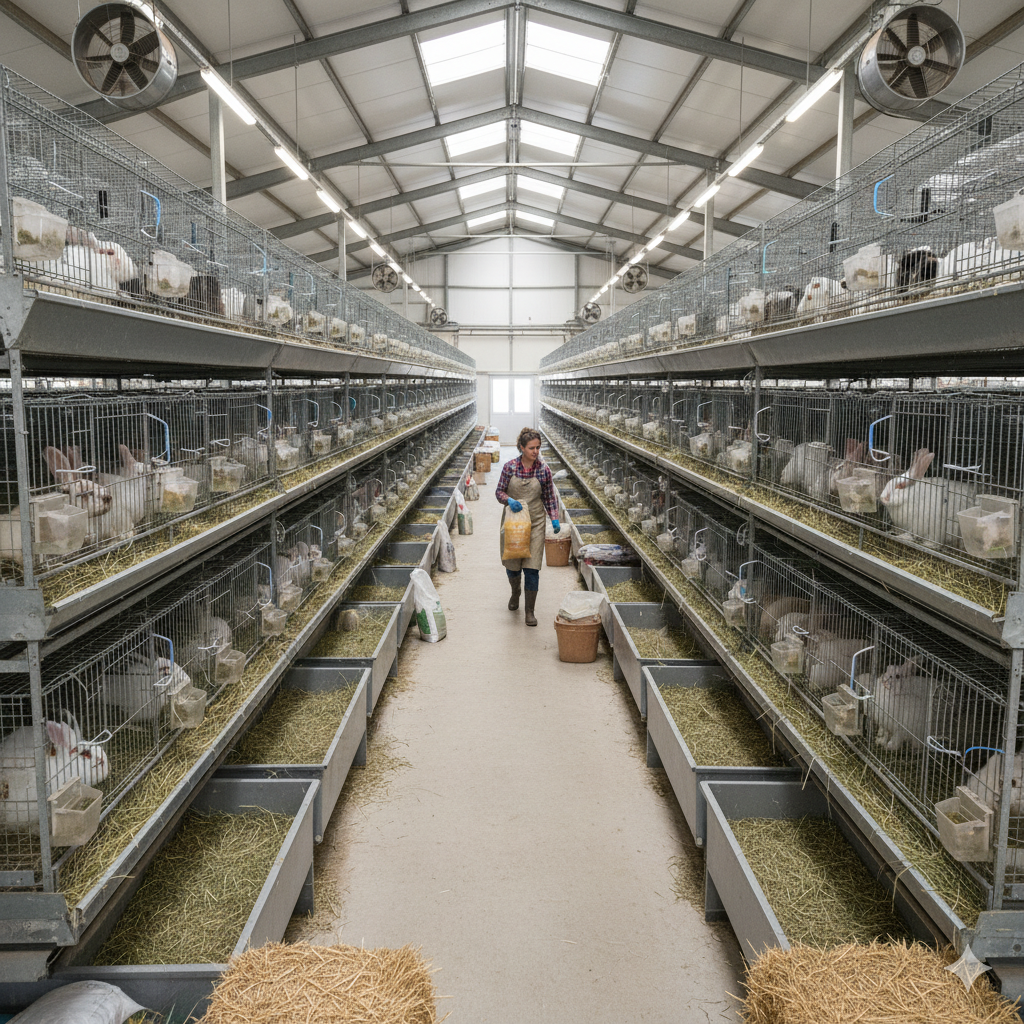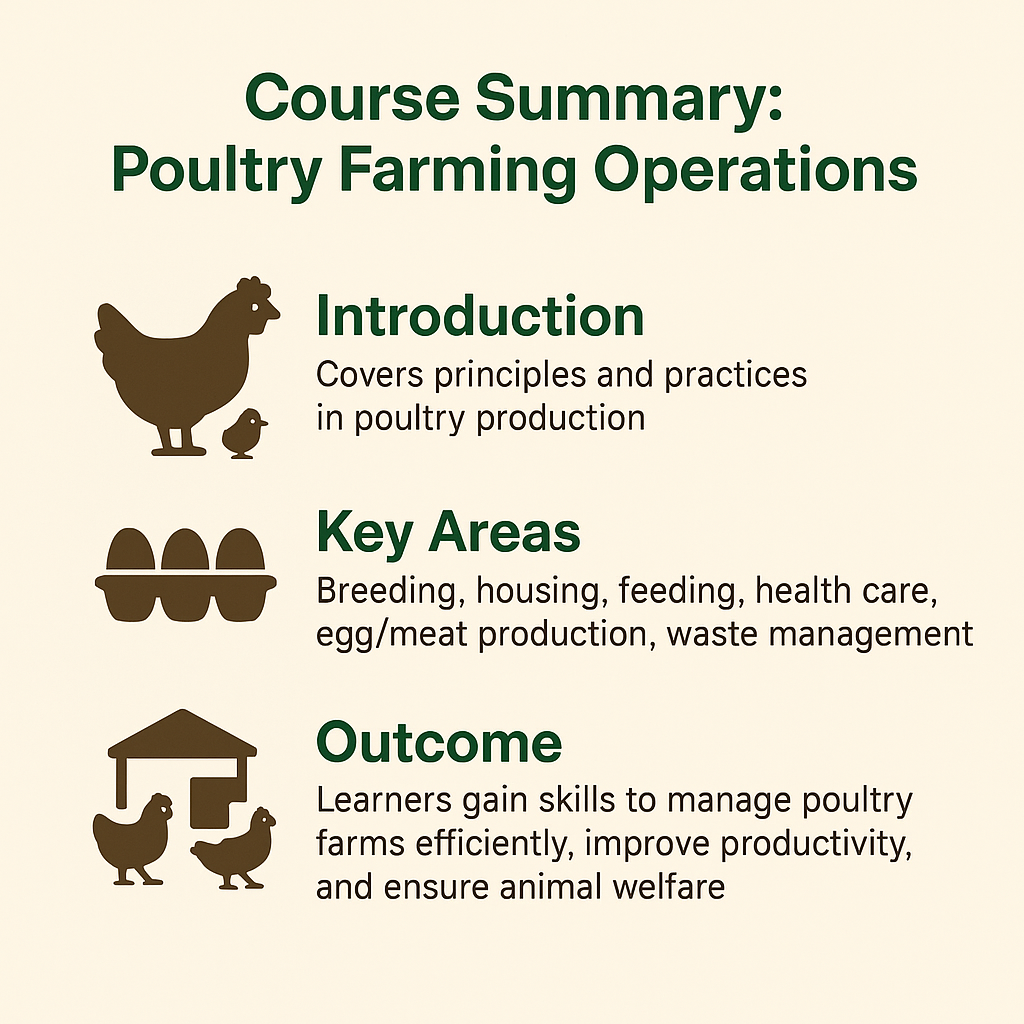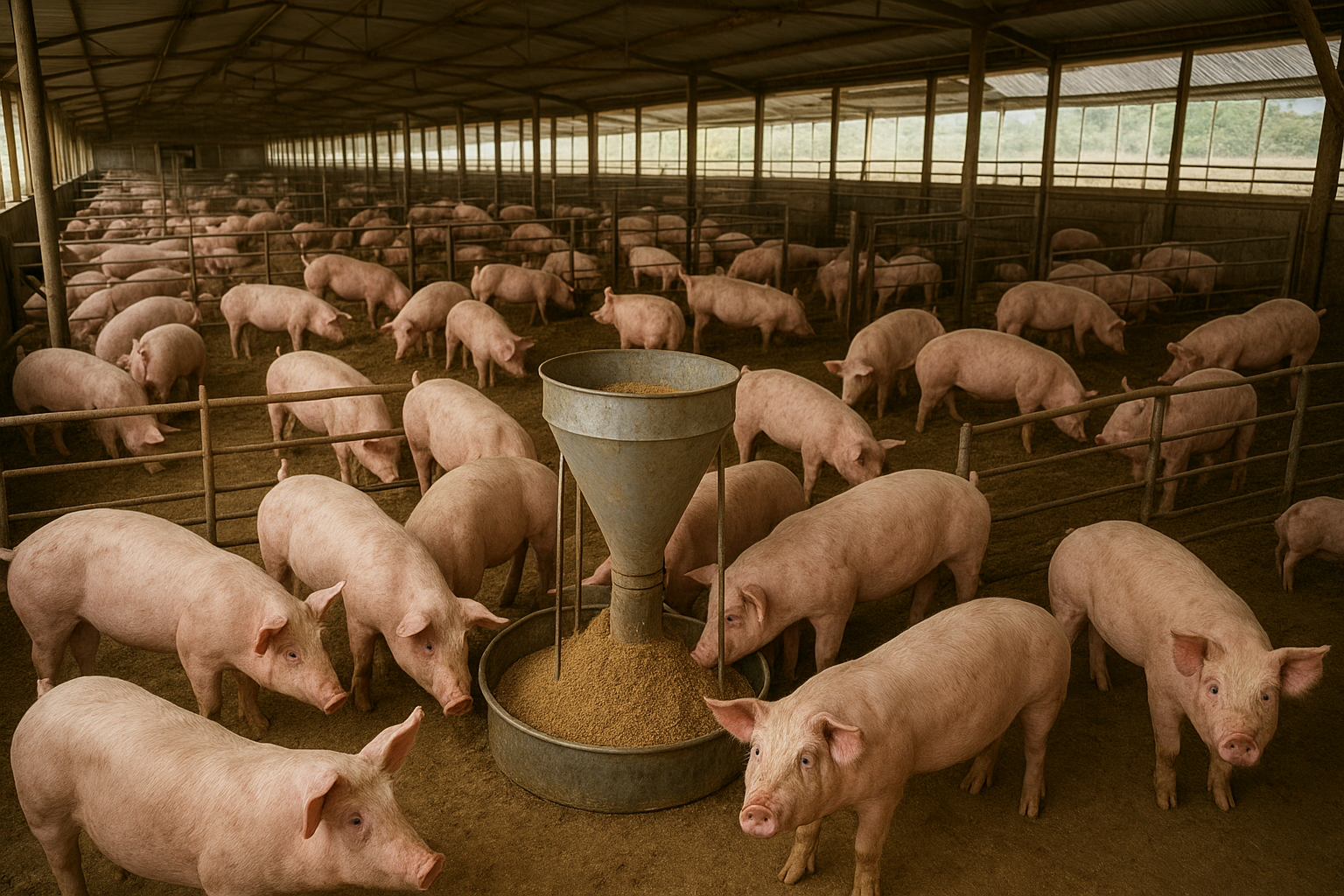
- Teacher: HAGENIMANA Eric
A course on hatchery operations provides a comprehensive overview of the process of producing high-quality poultry or fish from eggs. The curriculum typically covers the entire lifecycle, from the selection and management of parent stock to the handling of newly hatched animals. The goal is to equip students with the knowledge and practical skills needed to optimize production, ensure animal health, and run an efficient and profitable hatchery.

- Teacher: Jean Pierre RURANGIRWA
The course introduces the principles and practices of rabbit production, covering breeding, housing, feeding, health care, and product utilization (meat, fur, and manure). Learners gain practical skills to manage rabbit farms efficiently, improve productivity, and promote animal welfare.

- Teacher: Jean Pierre RURANGIRWA
The course provides knowledge and skills in poultry production and management, including breeding, housing, feeding, health care, egg and meat production, and waste management. Learners acquire practical techniques to run poultry farms efficiently, improve productivity, and maintain animal welfare standards.

- Teacher: Jean Pierre RURANGIRWA
The purpose of the module is to equip learners with the skills, knowledge, and attitude required to apply livestock extension techniques
Upon completion, learners will be able to assess farmers' needs, develop and deliver customized extension plans, and monitor and evaluate the impact of their services with minimal supervision
The course content covers effective farmer engagement, communication, and demonstration of livestock management techniques, emphasizing adaptability, respect for local practices, and a commitment to continuous learning to improve livestock farming
- Teacher: ALEXIE MUMUKUNDE
Pig farming operations involve the breeding, rearing, and management of pigs for meat (pork) and other by-products. The operations typically include housing and pen construction, feeding and nutrition management, breeding practices, health care and disease control, waste management, and marketing of pigs or pork products. Efficient pig farming focuses on providing proper housing, balanced feeding (concentrates and forages), hygiene, and veterinary care to ensure fast growth, high reproduction rates, and profitability.

- Teacher: Jean Pierre RURANGIRWA
- Teacher: HAGENIMANA Eric
